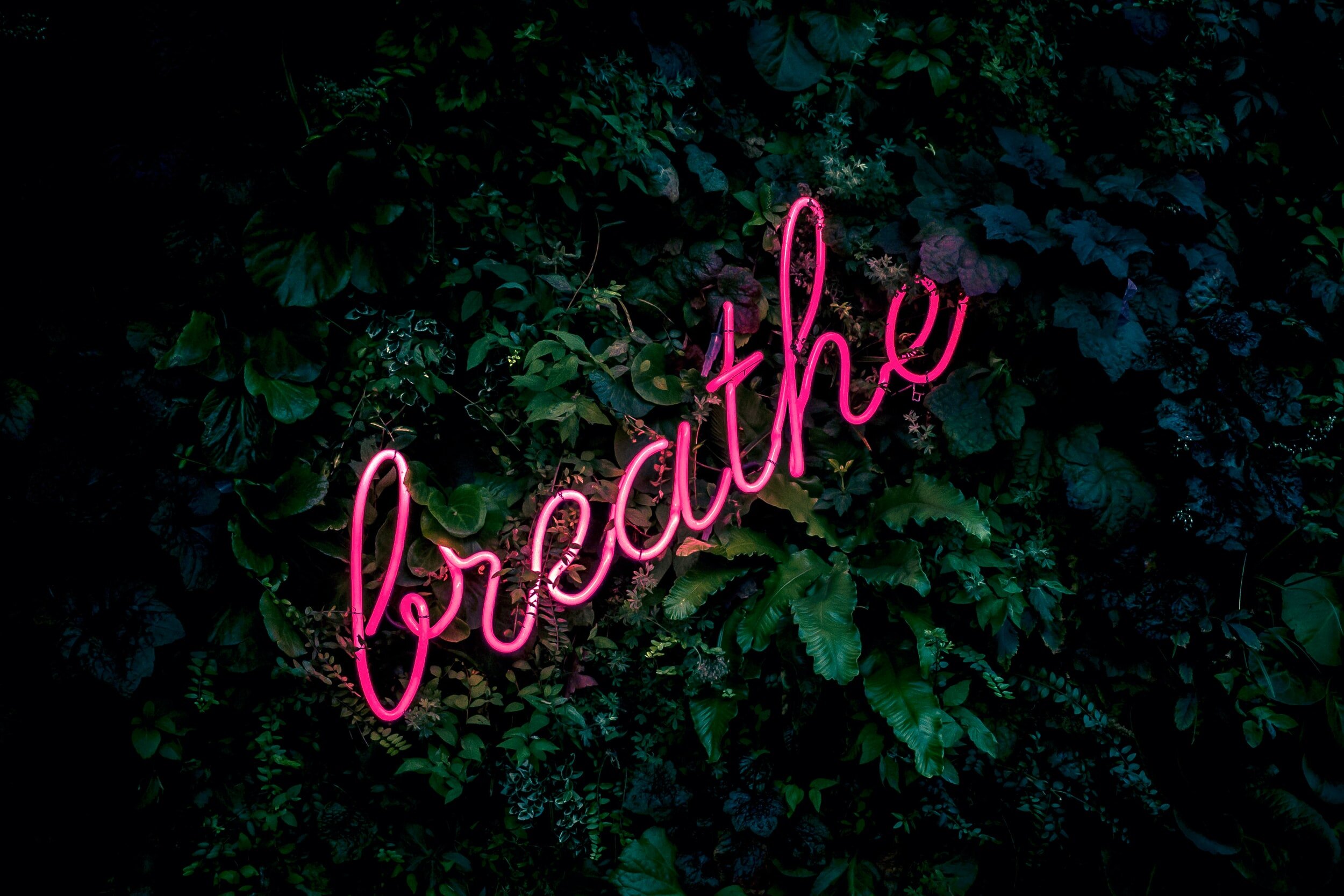5 Ways To Manage Your Training In An Era Of Uncertainty
It's Corona time. And I don't mean the crisp, cold Mexican beer with the quintessential slice of lime. Yep, COVID-19 is here and boy oh boy, saying it's put a spanner in the works for triathletes around the world is an understatement. It goes without saying that the 2020 season is going to be a very different beast altogether.
As athletes, our training routines help to ground us. They set the tone for the days. It's an opportunity for us to press the reset button and recharge our energy levels. Training gives us a sense of purpose and balance in our lives.
Coronavirus has disrupted that. Beyond its health impacts, COVID-19 has spread fear, sadness and anxiety around the world. If you're like me, it also created mental fatigue and that takes a toll on your training and wellbeing. Chances are you're probably stuck at home bored out of your goddam mind and/or dealing with kid(s) who themselves are bored out their goddam minds too. I'm in the same boat. And by the looks of things, we'll be sailing this ship for some time.
But it doesn't have to be all doom-and-gloom. I think it's important that we attempt to focus on the opportunities that lie ahead. Aside from the possibility of actually finishing all the shows on Netflix, what does this look like from a training and racing perspective? I'll attempt to delve into some solutions in this article but let's start by stating the obvious: we're all going to have to adapt. As Mike Tyson once famously declared: "a plan is all well and good until you get punched in the face". Folks, we've been punched in the face big time here. So let's take stock and adapt our plan to make this period of uncertainty, concern and worry turn out for the best.
1. Stay positive
First things first: keep calm and carry on! Just like when you hit the wall during a race (if that hasn't happened to you, it will), the important thing here is to shun those negative thoughts aside and focus on the good stuff. It sounds a bit koombaya-ish but it works. During a race, this might entail focusing on the beautiful landscape around you or the prospect of sipping on a nice, cold beer at the finish line! In Coronavirus lockdown mode, this could mean more time with your family or significant other(s), for example. Heck, you might even want to consider other race formats that have always tickled your fancy but you've never been able to commit under "normal" circumstances. Have a think. I'm sure you'll find some good things amidst all this chaos.
However, if you're really struggling with the current situation and see very little, if any positives, I'd encourage you to spend 10-20 minutes everyday meditating. I know I bang on about this a lot but personally, I find it pretty remarkable how much this has helped me during periods of feeling down and/or unmotivated. There are a bunch of different ways to meditate but I'd highly recommend taking Headspace for a whirl if you're new to the game.
2. Stick to your season goals but change the timings
If you had planned an early season race, chances are it's been cancelled or postponed to later in the year. It's frustrating, for sure. But don't let this overshadow your season. You can still have a killer race when the time comes, as long as you play it right now.
You can still have a killer race when the time comes, as long as you play it right now.
For athletes aiming to peak for an early season race, I would advise returning to your base building period. If you're in the thick of your build phase and feel like you're in the zone, there's no harm in continuing as planned until your next rest week. After that, transition back over to base workouts until you have a better sense of what's going on with the Coronavirus and its impact on this year's races.
If your race falls later in the year, continue as planned but be prepared to adapt your training in light of any further developments–and impacts–of the Coronavirus.
3. No pool? No problem.
Unless you're lucky enough to have a pool at home or the ability to swim in open water near where you live, chances are your swim training has taken an absolute nosedive as of late. Yeah, it sucks but rest assured: your fitness won't suffer much due to the lack of swimming. Cycling and running will preserve your cardio fitness throughout this period. Sure, your strength and technique may dip a bit but you can counteract that loss with the aid of some stretch cords and bands, like these bad boys. If you've never used these kind of devices before, here are some great exercises which will help build swim strength and good technique.
Your fitness won't suffer much due to the lack of swimming.
Likewise, I'd encourage you to work on your swim mobility. Here's a great video which will help you go through different ranges of motion so that you can come back to the pool stronger and more agile than ever.
4. Social distancing doesn't have to be anti-social
Part of the beauty of our sport is the ability to train with others. Whether you're part of a swim Masters team or you simply like to head out on your long bike rides with a bunch of mates, Coronavirus has put a dampener on all things social related. Or so it seems...
Just because you're stuck at home doesn't mean you can't be social. Sure, you could FaceTime/Skype your buddies for a chat whilst you're on the treadmill or doing some S&C but if there's one thing you should try during this period it's Zwift. It might look like more of a game than any training device you've come across but that's kind of the point. And don't be fooled by the bright, shiny graphics either. You'll get a solid workout in, especially if you choose to take part in one of the daily organized races. Likewise, all of the run and bikes workouts I prescribe my athletes sync directly to Zwift so you can follow a bespoke training plan in this virtual world too. Right now, you can try Zwift free for 30 days so if you have a bike and trainer at home, jump on the bandwagon!
5. Tackle your limiters and work on your mobility
From a training perspective, this period might allow you to tackle some of your limiters (aka your weaknesses) and/or dedicate time to mobility and "prehab" exercises–something most athletes tend to sideline during their normal training regime.
For some this might mean taking part in a daily yoga practice. There are a ton of amazing (and free!) videos online, my favorite being Sarah Beth Yoga and Yoga with Adrienne. Both have excellent routines for athletes so if you suffer from tight muscle groups, definitely check these out.
For other athletes, it might mean placing more emphasis on developing their skill in a particular area of triathlon. A good place to start is on the bike. If you have a turbo trainer at home, I'd encourage you to spend 5-10 minutes during your warm-up routine to hone in on your pedaling skills. Performing regular isolated leg training, pedal stroke quadrant drills and form sprints will all help you become a more efficient cyclist. The same goes for running by integrating higher cadence intervals into your endurance and recovery runs, for example.
Spending 15-30 minutes a day working on either your technique and/or mobility now will pay huge dividends for you later on in the season. So don't wait until the Coronavirus lockdown is over to begin integrating these into your training. Chances are you won't and that will be a huge missed opportunity.
Triathletes tend to be the toughest, most resilient type of people I've ever come across. The Coronavirus and its impacts is a challenge like no other but I have no doubt we'll get through this, together.
Control what you can control, release from your mind what you can't, stay as relaxed and as positive as possible, and move forward.
For now, control what you can control, release from your mind what you can't, stay as relaxed and as positive as possible, and move forward. We can–and will–deal with whatever life throws at us!
As always, if you have any feedback, or if there's anything I can do to help you, please drop a comment below or give me a shout directly.
For now though, stay safe, and stay positive.




